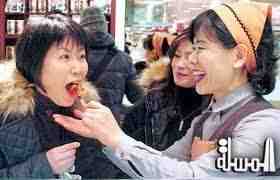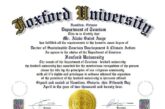
Decline in Japanese tourists raises concerns in Korean tourism industry
Almasalla Travel News – SEOUL, Korea – South Korea used to be a dream destination for many Japanese tourists – with the two capitals less than one hour away by flight.
But recent diplomatic and economic factors have pulled down the number of Japanese tourists to South Korea.
Although South Korea is seeing more tourists from other countries like China, the decline in the number of Japanese tourists has raised concerns in the tourism industry.
Myeongdong is a famous shopping belt for locals and foreigners located in central Seoul.
Japanese tourists used to throng the shopping district, but this is no longer the case these days – with fewer Japanese tourists flocking to South Korea.
According to the Korea Culture and Tourism Institute, about 689,000 Japanese travellers visited South Korea during the first three months of this year – a 22 per cent drop compared with the same period last year.
Territorial disputes, growing tension between North and South Korea and the recent depreciation of the Japanese yen are badly hurting the country’s tourism industry.
.jpg)
Seo Dae Hoon, an official at the Korea Association of Travel Agents, said: "Compared to last year, the number of Japanese tourists has dropped nearly 30 per cent. Many travel agencies that cater to Japanese tourists are making their employees take unpaid leave, and many guides are moving elsewhere. There are even one or two travel agencies that have gone bankrupt."
The association, made up of about 15,000 local travel agencies, has asked the government for help.
Although there are fewer Japanese tourists visiting South Korea these days, the number of people travelling from China has risen sharply – thanks to ‘Hallyu’ or the ‘Korean Wave’ and cheap flights between the two countries.
About 500,363 tourists from China visited South Korea in the first quarter of 2013 – up 71 per cent from the same period last year.
Seo Dae Hoon added: "Some tour guides who took care of Japanese tourists are now learning Chinese so that they can become guides for these tourists here. Or some of them are becoming travelling guides for Korean tourists overseas." The weak Japanese yen is not just affecting the tourism-related firms but all South Korean businesses, since a weak yen makes travelling to Japan much cheaper for South Korean tourists and Japanese goods much cheaper for overseas buyers.
Im Hye Chung, an analyst at Hyundai Economic Institute, said: "A weak yen has the biggest impact on exports and so if this continues, exports will fall and this will impact efforts to revive the economy."
Travel agencies in South Korea say if this trend continues, it’s going to be difficult for the government to reach its target of attracting 16 million foreign tourists in 2013.
So unless South Korea can find ways to lure the Japanese tourists back to this country, the future doesn’t look bright at all.
There are no signs that relations between the two countries will improve, or the threat from North Korea will simmer down.
Source : CNA/de







